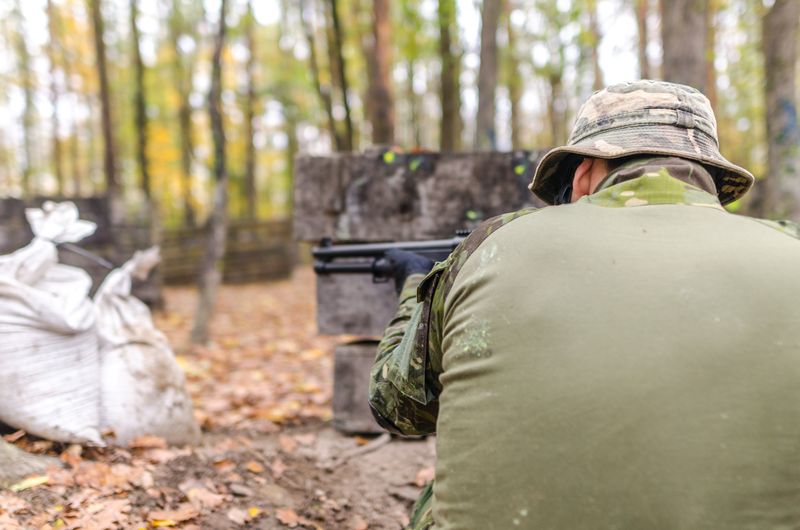Hezbollah Fires Mortars at Israel; IDF Strike Hits Tent on Lebanon Border in Response
Summary
The Hezbollah terror group launched mortar shells at Israeli military sites on the Lebanon border on Sunday morning. The attack was in solidarity with a major attack launched by the Palestinian Hamas terror group in the Gaza Strip. Hezbollah claimed to have fired dozens of rockets and shells at three Israeli positions in the contested Mount Dov region. The Israel Defense Forces (IDF) responded with artillery fire and a drone strike against Hezbollah infrastructure in the area. There were no reports of injuries. The United Nations Interim Force in Lebanon (UNIFIL) said it was in contact with both sides to contain the situation and avoid a more serious escalation.
Hezbollah‘s Further Involvement
Hezbollah’s involvement in the recent conflict between Israel and Palestinian terror groups represents a significant shift in their stance. In the past, Hezbollah has largely stayed out of such conflicts. However, this time they have not only expressed solidarity but also actively participated by launching attacks on Israeli sites. This move could be seen as a sign that Hezbollah is further aligning itself with the Palestinian cause and increasing its confrontation with Israel.
Analysis of the Situation
The involvement of Hezbollah adds a dangerous dimension to the already tense situation in the region. Hezbollah is a well-equipped and trained militia that has the backing of Iran, which poses a significant threat to Israel’s security. The group’s decision to launch attacks on Israeli sites could potentially lead to further retaliation and an escalation of the conflict. It is essential for both sides to exercise restraint and avoid actions that could result in a full-scale war.
Israel’s Response
The IDF responded to Hezbollah‘s attack by targeting the group’s infrastructure in the area. This demonstrates Israel’s commitment to defending its borders and protecting its citizens. However, any further military action must be carefully considered to prevent a rapid deterioration of the security situation. Israel should prioritize de-escalation and use diplomatic channels, such as UNIFIL, to address the ongoing tensions and avoid further conflict.
The Role of UNIFIL
UNIFIL has an important role to play in preventing the situation from escalating further. The organization should continue its efforts to mediate between Hezbollah and Israel and ensure that both sides respect the UN-recognized Blue Line, which marks the border between the two countries. UNIFIL’s presence and coordination mechanisms can help facilitate dialogue and prevent any miscalculations or misunderstandings that could lead to a larger conflict.
Editorial: The Increasing Threat of Hezbollah
The recent involvement of Hezbollah in the conflict between Israel and Palestinian terror groups is a concerning development. Hezbollah, with its well-armed and trained fighters, is widely regarded as one of the most significant threats to Israel’s security. The group’s increasing alignment with the Palestinian cause and its decision to actively participate in attacks against Israeli sites raises the stakes in an already volatile region.
This shift in Hezbollah‘s stance signals a potential turning point, not only for the group but also for the wider dynamics of the Israeli-Palestinian conflict. Hezbollah‘s increasing involvement could further complicate efforts for a peaceful resolution and potentially ignite a broader regional conflict.
It is crucial for the international community to closely monitor and address the situation. Diplomatic efforts must be intensified to reduce tensions and prevent any escalation that could have devastating consequences. Regional powers, such as Iran and Saudi Arabia, should use their influence to encourage restraint and promote a peaceful resolution to the conflict.
Advice: Prioritizing De-escalation and Dialogue
In this critical moment, both Israel and Hezbollah should prioritize de-escalation and explore diplomatic avenues for resolving their differences. Continuing down the path of tit-for-tat attacks will only lead to further bloodshed and destruction.
Direct dialogue between the parties, facilitated by international mediators like the United Nations, is essential for building trust, addressing grievances, and finding common ground. Both sides must be willing to make concessions and find a peaceful resolution that addresses the root causes of the conflict.
Regional actors, particularly Iran and Saudi Arabia, can play a constructive role by encouraging dialogue and exerting pressure on their respective allies. The international community, including the United States and European Union, should support these efforts and provide the necessary diplomatic support to foster dialogue and promote peace.
Ultimately, a sustainable peace can only be achieved through negotiation, compromise, and a genuine commitment to resolving the underlying issues that have fueled the Israeli-Palestinian conflict for decades. It is up to the leaders on both sides to prioritize the well-being and security of their people and seize this opportunity for lasting peace.

<< photo by Lukas >>
The image is for illustrative purposes only and does not depict the actual situation.
You might want to read !
- Jordan Peterson and the Controversial Call for Netanyahu’s Unleashing: Exploring Backlash and Implications
- The Battle of the Premiership: Rangers Triumph over St. Mirren (0-2)
- The Battle at Brighton: Liverpool’s Premier League Quest
- Understanding Hezbollah: A Deep Dive into Lebanon’s Influential Political and Military Powerhouse
- Unveiling the Flavorful Layers of Big Zuu’s Rise: Age, TV Stardom, and Matters of the Heart
- Battle of the Midland Rivals: Wolves and Aston Villa Clash in Nail-Biting Draw
- Exploring Leicester City’s Championship Success: A Thrilling Showdown Against Stoke City
- Jaysley Beck’s Encounter with Army Boss Reveals Unwelcome Behavior
- Emma Roberts Issues Apology for Controversial Remark about the Transgender Community




